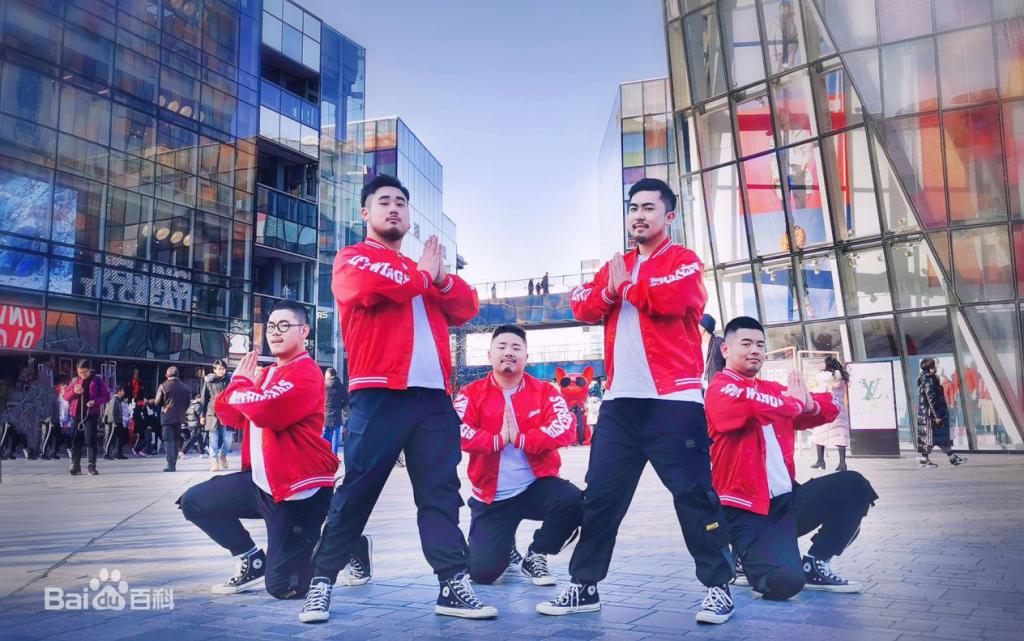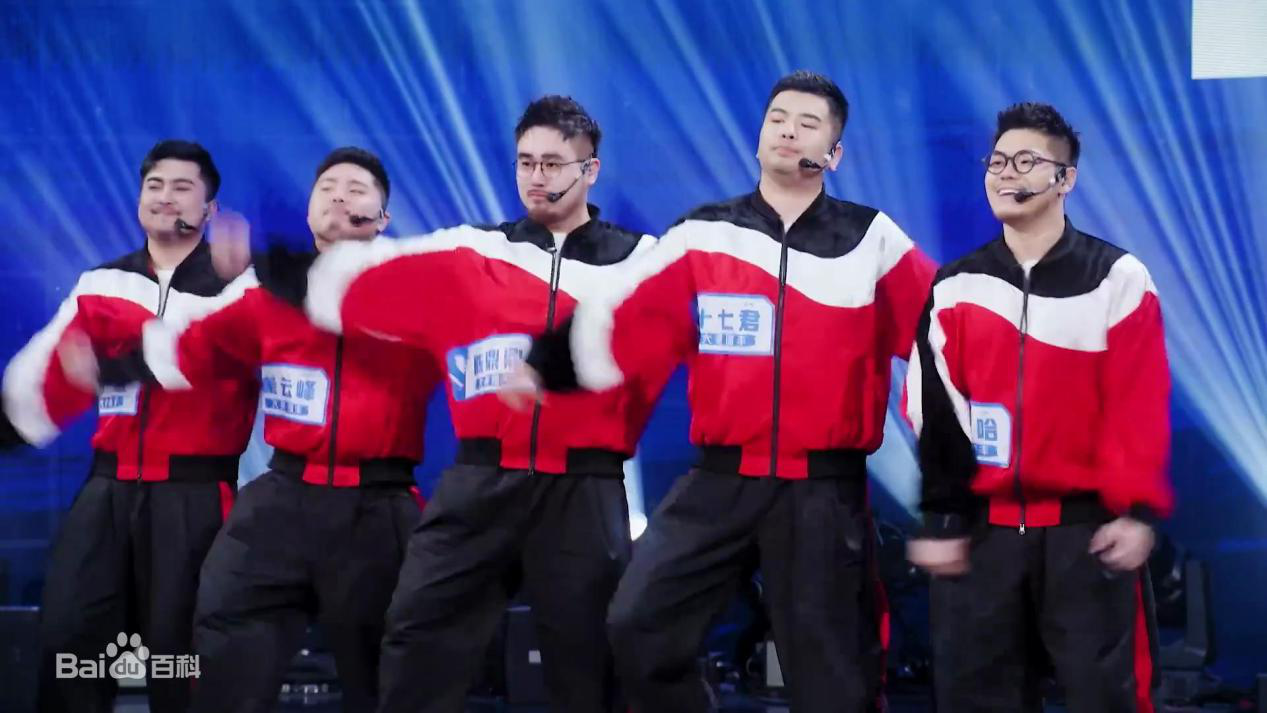This year's talent show season officially began in February. For many young viewers, the talent show is a mini-fest that lasts for many months. Young contestants do their best to unleash their charisma on stage, and online viewers go wild with fascination, doing their best to turn their favorite contestants into the "real" stars in the spotlight.
今年的选秀季在二月正式开始。对于很多年轻观众而言,选秀是一场持续多月的小狂欢。年轻的选手们在舞台上竭尽全力释放自己的魅力,网络上的观众为之着迷而疯狂,同样竭尽全力地要将自己心仪的选手变成万众瞩目的“真正的”明星。
I'm not a big fan of following variety shows, but this year I had felt the draft vibe permeating the Internet air as early as half a month before the draft began - but it wasn't exactly a happy-go-lucky vibe. It's customary for the show to release a list of contestants a few weeks before the draft begins, including photos and other personal information, and it's when the show starts to get a lot of attention. But this year the buzz seems to be a little more heated because of the entry of several unexpected contestants.
我不是一个很喜欢关注综艺节目的人,但今年早在选秀节目开始前半个月我就感受到了选秀的氛围在互联网空气中弥漫——但并不是什么和乐融融的氛围。按照惯例,节目会在选秀开始前几周公布选手的名单,包括照片等个人信息,正是由此选秀得到了广泛的关注。但今年的讨论好像格外热烈些,因为几位意料之外的选手的参赛。
The five contestants came from the same group, Produce Pandas, with thick eyebrows, glasses, moustaches, and round bodies like pandas. Such an image is very different from the impression of talent contestants in the minds of many viewers. When they just announced their participation, they received many discontented voices: "A group of greasy dead fat pigs" "There is no minimum bottom line(to the face score of stars), only a lower one" "The entertainment industry is so easy to enter?" (sic)
这五位选手来自于同一个组合——熊猫堂,浓眉,戴眼镜,留小胡子,身材也像熊猫一样,都是圆滚滚的。这样的形象与许多观众心中对选秀选手的印象大相径庭,他们刚宣布参赛,就收到了许多不满的声音:“一群油腻的死肥猪”“(明星的颜值)底线这东西没有最低,只有更低”“娱乐圈这么好进?”(原文如此)

At first I thought this discussion was just another irresponsible vent on the Internet, but it turns out that many viewers really can't stand the presence of these five contestants in the talent show, because every time they make a move in the show, a new round of cursing starts online. Even after they showed their notable strength on stage, there were still many resentful comments from the audience: good dancer, but should not come to the talent show, the talent show is for pretty faces.
一开始我以为这讨论只是又一次的在网络上不负责任的发泄,但事实证明,许多观众真的无法容忍这五位选手出现在选秀节目中,因为每当他们在节目里有什么举动,网上就开始新一轮的骂战。乃至他们在舞台上展现不俗的实力后,仍有不少观众悻悻评论:跳得不错,可是不应该来选秀,选秀就是要长得好看的。
The "idols should be good-looking" is a very pale defense of the previous online violence, because first of all, "good-looking" is not well defined. Why can't people be beautiful with a moustache and a round body? The main audience of the talent show has put many restrictions on "beauty" and then put this cage on the contestants. Many people cry out that female idols work hard to manage their bodies, so why should male idols deserve such tolerance? But the fact is that being mean to male contestants doesn't make the situation of female idols any better. Since you know that such "beauty maintaining" is a painful shackle, why do you still put it on your idols?
“爱豆就要长得好看”是对之前的网络暴力的非常苍白的辩白,因为首先“长得好看”就不是一个良定义。小胡子,不苗条怎么就不能是美的呢?选秀节目的主要受众们对“美”加了诸多限制,又将这个牢笼套到选手身上。许多人大喊,女偶像们辛辛苦苦进行身材管理,凭什么男偶像就值得这样的宽容?但事实上,人们对男明星这么刻薄,也没法使女明星的处境改善一点。而且,既然你知道这样的“美”是痛苦的枷锁,为什么还要套在偶像们身上?

At the very beginning, many people found out that Produce Pandas "belongs to the gay community", and that their looks are indeed a popular type among gay men, and that they are not appealing to the main audience of the talent show - heterosexual women. Among the voices attacking them, many say they are "greasy", pretending to be cute and pandering to gay men. But for people like us who are not familiar with the mainstream aesthetics of talent shows, how are the contestants other than Produce Pandas, who have clean-shaven chins, long bangs, thin waists and shy smiles to please the heterosexual female audience, not flattering? I don't resent any of the above, because that's probably the rule of the talent show, and we all know that this little orgy is just a chance for viewers to choose their "cyber husband/wife/son/daughter" among a bunch of pretty boys.
在一开始,就有不少人发现,熊猫堂“一看就是基佬圈的”,他们的长相确实是在男同性恋中受欢迎的类型,他们讨好的,并不是选秀节目的主体观众——异性恋女性。在攻击他们的声音中,很多人说熊猫堂“油腻”,装可爱,向男同性恋献媚。但对于我们这种不熟悉选秀主流审美的人来说,除开熊猫堂以外的选秀选手们,那些有光洁下巴、长刘海、细腰和害羞笑容的讨异性恋女性观众欢心的选手,又何尝不是谄媚的呢?无论是上述哪种讨好,我都不反感,因为这大概就是选秀节目的规矩,大家也心知肚明,选秀这场小狂欢,不过是提供了一个机会,让观众们在一群漂亮男孩中选出自己的“网络丈夫/妻子/儿子/女儿”。
The heterosexual female viewers felt so offended not really because Produce Pandas is "unattractive" (who are actually more refined than many people in real life), but because there were several contestants on the show who didn't see them as their audience. I was puzzled by this and thought it was a bit too unreasonable. When I mentioned this to my friend, she replied that it couldn't be helped because that's the consumer's voice, after all, they still make up the majority of the audience. But it's not just the talent show audience, in fact, in life, the heterosexual population is also the majority. Heterosexual female viewers believe that they are the only ones watching talent shows and thus belittle other preferences, just like how heterosexuals used to ignore and reject sexual minorities and their needs. I think most of these young viewers are friendly to sexual minorities in real life, and don't approve of body shaming, which they put behind them while watching the show, but at least it shows that the attack wasn't really something that ‘can’t be helped’.
异性恋女性观众感到如此冒犯,并不真的是因为熊猫堂长得“不好看”(其实长得已经比她们在现实生活中遇到的很多人精致),而是因为节目中存在几个选手并不把她们当成自己的受众。这让我很疑惑,觉得这未免有些过于不讲理。我和朋友提起这个的时候,她回答说,这是没办法的事,因为这就是消费者的话语权,毕竟她们在观众中还是占了绝大多数。但其实不仅仅是选秀观众中,在生活中,异性恋人群也是占了大多数的。异性恋女性观众认为只有她们自己在看选秀综艺、从而轻视别样的喜好,和从前异性恋们对性少数者及其需求的忽视与排斥别无二致。我觉得这些年轻观众中的大部分人在现实生活中都对性少数者持友好包容的态度,也不会认可身材羞辱这样的行为,虽然她们在看综艺的时候都将这些抛掷脑后了,但这至少说明了,这场攻击的发生并不真的是“没办法的事”。

